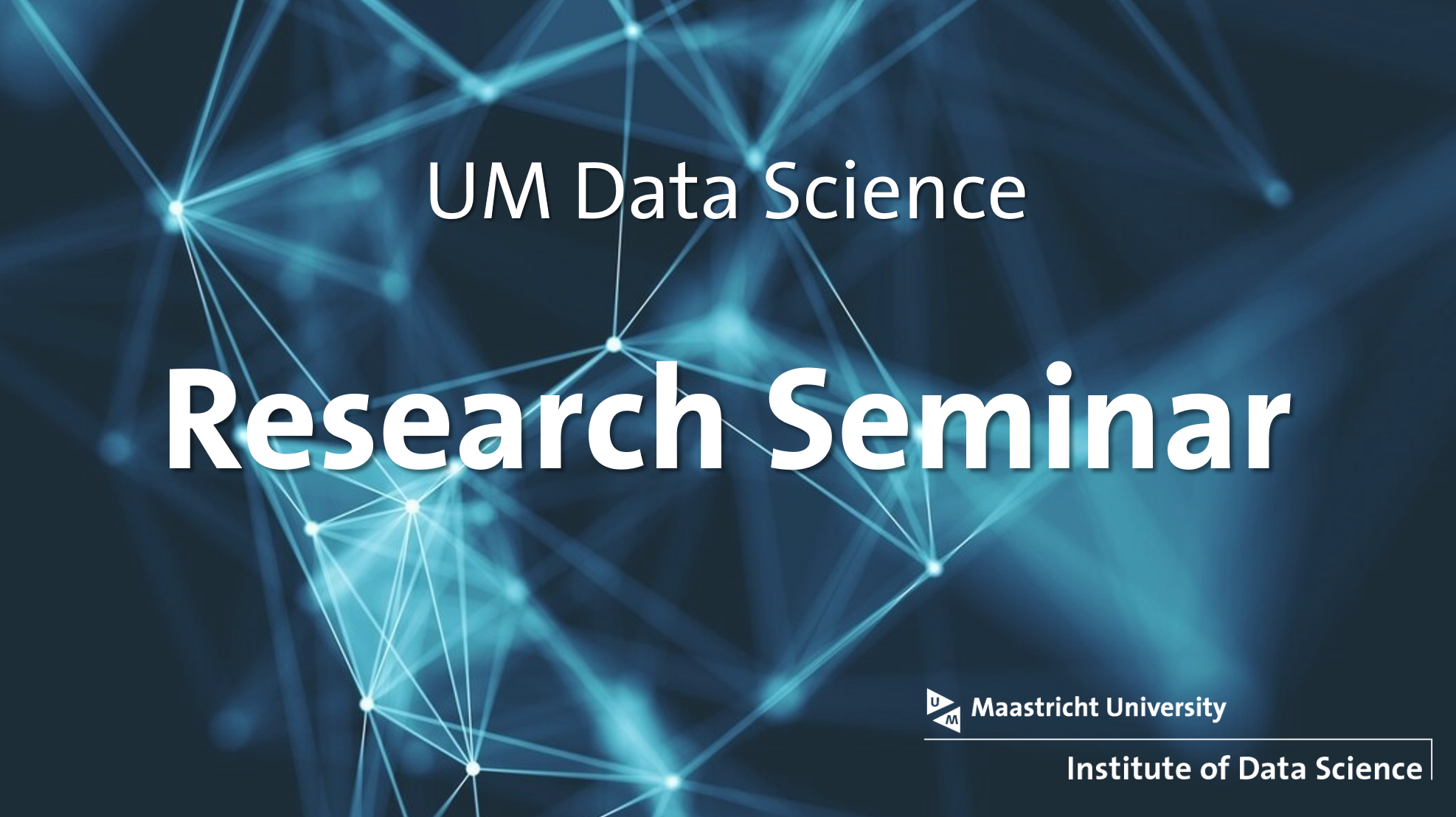UM Data Science Research Seminar
The UM Data Science Research Seminar Series are monthly sessions organised by the Institute of Data Science in collaboration with different departments across UM with the aim to bring together data scientists from Maastricht University to discuss breakthroughs and research topics related to Data Science.
This first session of 2019 is organised in collaboration with the Department of Data Science and Knowledge Engineering on April 18, 2019 from 12:00 - 1:00pm.

Bouillonstraat 8-10, 6211 LH Maastricht Room 1.001
Event is free and open to everyone. Lunch will be provided. Please register by April 15, 2019.
Schedule
12.00 - 12.30
Talk by Apostolis Zarras
Title: Automated Dynamic Firmware Analysis at Scale
Abstract: Embedded devices are becoming more widespread, interconnected, and web-enabled than ever. However, recent studies showed that embedded devices are far from being secure. Moreover, many embedded systems rely on web interfaces for user interaction or administration. Web security is still difficult and therefore the web interfaces of embedded systems represent a considerable attack surface. In this talk, I will present the first fully automated framework that applies dynamic firmware analysis techniques to achieve, in a scalable manner, automated vulnerability discovery within embedded firmware images. This framework was used to study the security of embedded web interfaces running in Commercial Off-The-Shelf (COTS) embedded devices, such as routers, DSL/cable modems, VoIP phones, IP/CCTV cameras. I will introduce the methodology and the implementation of the framework, which is able to automatically discover vulnerabilities in embedded web interfaces regardless of the devices’ vendor, type, or architecture. I will also present some interesting case-studies and discuss the main challenges associated with the dynamic analysis of firmware images, their web interfaces ,and network services.
12.30 - 13.00
Talk by Katerina Stankova
Title: Improving treatment of metastatic cancers with game theory and patient-specific data
Abstract: While systemic therapy for metastatic cancers is often initially successful, malignant cells, using diverse adaptive strategies encoded in the human genome, almost invariably evolve resistance, leading to treatment failure.
In this talk, we will investigate cancer treatment as a game-theoretic contest between the physician's therapy and the cancer cells' resistance strategies. This game has two critical asymmetries: (1) Only the physician can play rationally. Cancer cells, like all evolving organisms, can only adapt to current conditions and can neither anticipate nor evolve adaptations for treatments that the physician has not yet applied. (2) It has a distinctive Stackelberg (i.e. leader-follower) dynamics; the "leader" oncologist plays first and the "follower" cancer cells then respond and adapt to therapy. Current treatment protocols for metastatic cancer typically exploit neither asymmetry. By repeatedly administering the same drug(s) until disease progression, the physician "plays" a fixed strategy even as the opposing cancer cells continuously evolve successful adaptive responses. By changing treatment only when the tumor progresses, treatment failure becomes nearly inevitable.
Using game theory, we will see how physicians can exploit the advantages inherent in the asymmetries of the cancer treatment game, and likely improve outcomes, by adopting more dynamic treatment protocols that integrate patient-specific data and modulate therapy accordingly. We will analyze a number of clinical trials where the therapy based on game-theory led to much better patient outcomes.
For questions or concerns, please contact us via info-ids@maastrichtuniversity.nl.